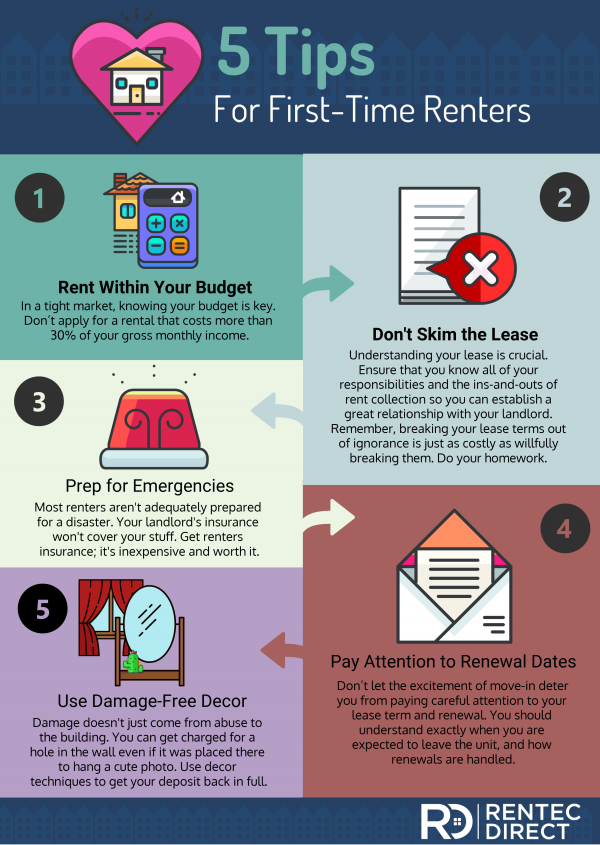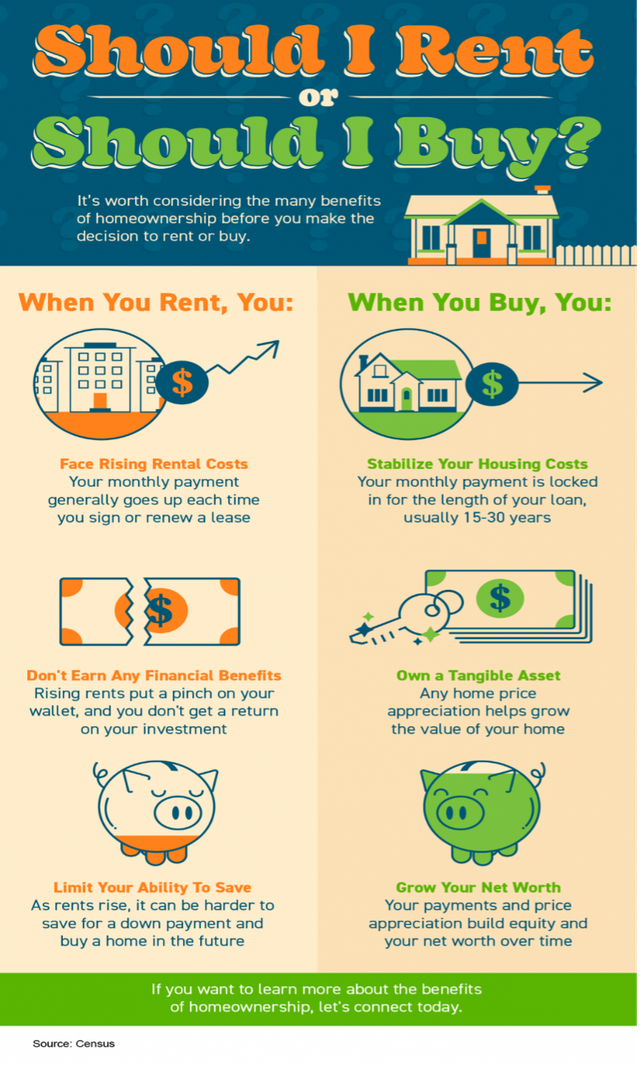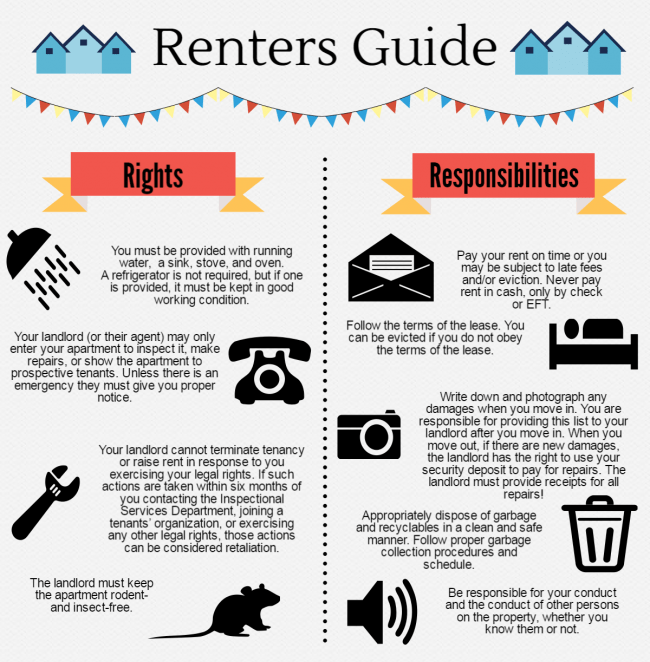Discover the secrets to navigating the rental market successfully and securing your dream home with this comprehensive guide for renters.

Image courtesy of Wallace Chuck via Pexels
Table of Contents
Introduction to Renting
In this fun and easy-to-read guide, we’ll talk about some top tips for renters and how you can be a superstar at renting your own place! Let’s dive into what it means to rent a home and why following renting tips can help you succeed in finding and managing your perfect rental space.
What is Renting?
First, let’s talk about what it means to rent a home and why people do it. Renting is when you pay money to live in a house or apartment that belongs to someone else. It’s like borrowing a home for a while without actually buying it. People rent for lots of reasons, like wanting to live in a new city without committing to buying a house, or because it’s more affordable than owning a home.
Why Follow Renting Tips?
Following renting tips is like having a secret guidebook to help you make the best choices when it comes to renting. These tips can save you time, money, and even help you avoid common renting problems. By learning successful renting strategies, you can navigate the rental world like a pro and find the perfect place to call home.
Finding Your Perfect Rental Home
Let’s dive into how to pick the best house or apartment for you to rent.
What to Look For?
When searching for your perfect rental home, it’s essential to consider a few key factors to ensure you end up in a place that suits your needs and lifestyle. First and foremost, think about the location. Is it close to work or school? Are there grocery stores, parks, or other amenities nearby? Make sure the neighborhood feels safe and welcoming.
Next, think about the size of the rental. Do you need one bedroom or two? Will you be bringing pets along with you? Make sure the space fits your needs and that you’ll be comfortable living there. Additionally, consider the rental price. Can you afford the monthly rent along with utilities and any other costs associated with the property?
Lastly, check the condition of the rental home. Are there any signs of damage or issues that need to be addressed? Make sure everything is in good working order before signing on the dotted line.
Check It Twice!
It’s always a smart move to visit a potential rental property more than once before making your final decision. When you revisit the place, pay attention to details you might have missed the first time. Take note of the noise levels, the amount of natural light, and any potential concerns you may have overlooked initially.
Visiting multiple times also gives you a chance to imagine yourself living in the space. Picture where your furniture will go, how you’ll layout the rooms, and how you’ll make the rental feel like home.
Understanding Your Lease Agreement
In this part, we’ll explain the lease agreement in easy words so you’ll know what you’re signing up for.

Image courtesy of www.rentecdirect.com via Google Images
The Basics of a Lease
A lease is like a rulebook for living in a rental home. It’s a special paper that says how long you can stay in the house or apartment and how much you need to pay each month. It also talks about what you can and can’t do while living there, like having pets or painting the walls.
Questions to Ask Before Signing
Before you put your name on the lease, it’s important to ask some questions. You should make sure you understand everything in the lease so you won’t have any surprises later. Some good questions to ask are about how long the lease lasts, what happens if you need to move out early, and who is responsible for fixing things like a leaky faucet.
Moving In Like a Pro
When it’s time to move into your new rental, it’s essential to have a plan in place to make the process smoother. Start by making a checklist of all the things you need to pack and tasks you need to complete before moving day. This way, you won’t forget anything important. You can also ask your family or friends to help you out to make the moving process more manageable.
The First Day in Your New Home
After you’ve moved in all your stuff, take some time to familiarize yourself with your new space. Unpack your essentials first, like your bedding, toiletries, and a few kitchen items. This way, you can start feeling at home right away. Take a stroll around the neighborhood to get to know your surroundings and introduce yourself to your new neighbors. By exploring your new area, you’ll start feeling more at ease in your new home.
Taking Care of Your Rental
Once you’ve moved into your rental, it’s important to keep up with some simple tasks every day to make sure your home stays cozy and clean. One easy job is to make your bed each morning and tidy up any messes you see around the house. Don’t forget to take out the trash regularly and wipe down kitchen surfaces after cooking. These small actions can help maintain a pleasant living environment.

Image courtesy of advice.onekeymls.com via Google Images
When to Call the Landlord
While you may be able to handle some maintenance tasks on your own, there are times when it’s best to reach out to your landlord for help. If you notice a leaky faucet, a malfunctioning appliance, or a pest problem that you can’t handle, it’s a good idea to inform your landlord promptly. By reporting issues early on, you can prevent them from turning into bigger problems later.
Dealing with Roommates
Living with roommates can be a blast, but it’s essential to set some ground rules together to avoid conflicts. Sit down with your roomies and chat about things like quiet hours, cleanliness expectations, and sharing of common areas. By setting rules collaboratively, everyone can feel heard and respected.
Sharing is Caring
When you share a living space with roommates, it’s vital to remember that sharing is caring. Whether it’s space in the fridge, the TV remote, or the bathroom, being considerate of each other’s needs and belongings can go a long way in maintaining a harmonious living environment. Communication and compromise are key to successful cohabitation.
Renting Money Matters
Let’s figure out how to handle your cash when you’re renting.

Image courtesy of offcampus.sites.northeastern.edu via Google Images
Saving On Rent
Here are some great ideas for keeping some of your rent money in your piggy bank. You can try finding a roommate to split the cost of rent, or you can look for rental specials and discounts. Another tip is to negotiate with your landlord for a lower rent if you have been a great tenant. Saving on rent can help you have more money for other things you enjoy!
Budgeting for Bills
Let’s make a plan so paying bills doesn’t seem scary. Start by listing all the bills you need to pay each month, like rent, utilities, and internet. Then, calculate how much money you need for each bill and set aside that amount from your paycheck. It’s a smart idea to create a budget to track your expenses and make sure you have enough money for all your bills. Budgeting for bills will help you stay on top of your finances and avoid late fees.
Renewing Your Lease
Time flies when you’re renting your perfect place! Before you know it, your lease will be coming to an end. Here’s what you should do when it’s time to renew your lease.
| Topic | Tips |
|---|---|
| Research | Research the rental market in your desired area to understand pricing and availability. |
| Budgeting | Set a budget that includes rent, utilities, and other expenses to avoid financial strain. |
| Documentation | Ensure you have all necessary documentation (ID, pay stubs, references) ready for the application process. |
| Lease Agreement | Read and understand your lease agreement fully before signing to avoid any surprises. |
| Communication | Communicate openly and respectfully with your landlord or property manager to address any issues. |
| Maintenance | Report maintenance issues promptly to ensure your rental remains in good condition. |
Consider if You Want to Stay
When your lease is about to end, it’s essential to stop and think about whether you want to stay in your current rental or if it’s time to find a new adventure. Consider the location, the size of your place, the cost, and if it still meets your needs. Make a list of pros and cons to help you decide if renewing your lease is the right choice for you.
Negotiating a Renewal
If you’ve decided that staying in your current place is what you want, it’s time to gear up and negotiate your lease renewal with your landlord. Don’t be afraid to advocate for yourself and ask for what you want. Whether you’re looking for a rent reduction, an upgrade in your rental unit, or some new appliances, make sure to communicate your needs clearly. Remember, your landlord wants good tenants, so a polite and reasonable discussion can go a long way in securing a favorable lease renewal.
Being an Awesome Tenant
In the world of renting, being an awesome tenant is like being a superhero! It means you’re responsible, respectful, and great at living in your rental home. Let’s dive into what it takes to be the best tenant ever.

Image courtesy of www.pinterest.com via Google Images
Good Renter Habits
Being a good tenant starts with some simple habits that can make a big difference. First off, always pay your rent on time. Your landlord will appreciate it, and it’s a crucial part of being a reliable renter. Keep your place clean and tidy too. Nobody likes a messy tenant! Remember to follow the rules of your lease agreement. If it says no pets, then no pets it is! And don’t forget to be mindful of your neighbors. Keep the noise levels down and respect their space.
Building a Solid Relationship with your Landlord
Having a great relationship with your landlord can make renting a breeze. Communication is key, so always keep the lines open. If something breaks or needs fixing, let your landlord know promptly. They’ll appreciate your honesty and responsibility. Treat your rental home like it’s your own, and your landlord will see how much you care about the property. By being friendly, respectful, and reliable, you’ll build a strong bond with your landlord that can make your renting experience smooth and enjoyable.
Final Tips and Tricks
So you’re all set to move into your new place, but before you do, make sure you’ve got these things covered:
1. Have you read and understood your lease agreement?
2. Did you take photos of any existing damage in the rental?
3. Have you set up your utilities and changed your address?
4. Do you have a plan for paying rent on time each month?
5. Have you met your neighbors and introduced yourself?
Common Renting Pitfalls to Avoid
When you’re renting, it’s essential to watch out for these common traps to ensure a smooth and happy rental experience:
1. Ignoring maintenance issues – report any problems to your landlord promptly.
2. Not budgeting for unexpected expenses – set aside some money for emergencies.
3. Violating your lease agreement – stick to the rules outlined in your lease to avoid trouble.
4. Not communicating with your landlord – keep them informed about any concerns or changes.
5. Letting conflicts with roommates escalate – address issues early on to maintain a harmonious living situation.
By keeping these tips in mind and avoiding common pitfalls, you’ll be well on your way to a successful and enjoyable renting experience!
FAQs (Frequently Asked Questions)
What is Renting?
Renting is when you pay money to live in a house or apartment that belongs to someone else instead of buying it. It’s like borrowing a place to live for a while.
Why Follow Renting Tips?
Following renting tips is cool because they can help you have a smoother and happier experience while living in a rental home. These tips can make your life easier and more fun!
What to Look For?
When you’re looking for a rental home, make sure to check out the location, size, and condition of the place to see if it meets your needs and makes you feel comfortable.
Check It Twice!
It’s a smart move to visit a rental place more than once before deciding to rent it. This way, you can spot any issues or things you missed the first time around.
The Basics of a Lease
A lease is a legal document that lays out the rules and responsibilities for both you and the landlord. It includes details like the rent amount, the duration of the lease, and what you can and can’t do in the rental home.
Questions to Ask Before Signing
Before signing a lease, make sure to ask questions about anything you’re unsure about. This will help prevent misunderstandings later on.
Planning Your Move
Planning your move ahead of time can save you a lot of stress. Make a checklist, pack systematically, and ask for help if you need it!
The First Day in Your New Home
On your first day in your new rental, take some time to unpack, explore your new home, and make it cozy. It’s your space now, so enjoy it!
Daily Duties
To keep your rental in good shape, make sure to do small tasks every day, like cleaning up, taking out the trash, and reporting any issues to your landlord promptly.
When to Call the Landlord
If you’re facing a problem in your rental home that you can’t fix on your own, don’t hesitate to reach out to your landlord for help. It’s better to address issues early on.
Idaho Poperty Management
